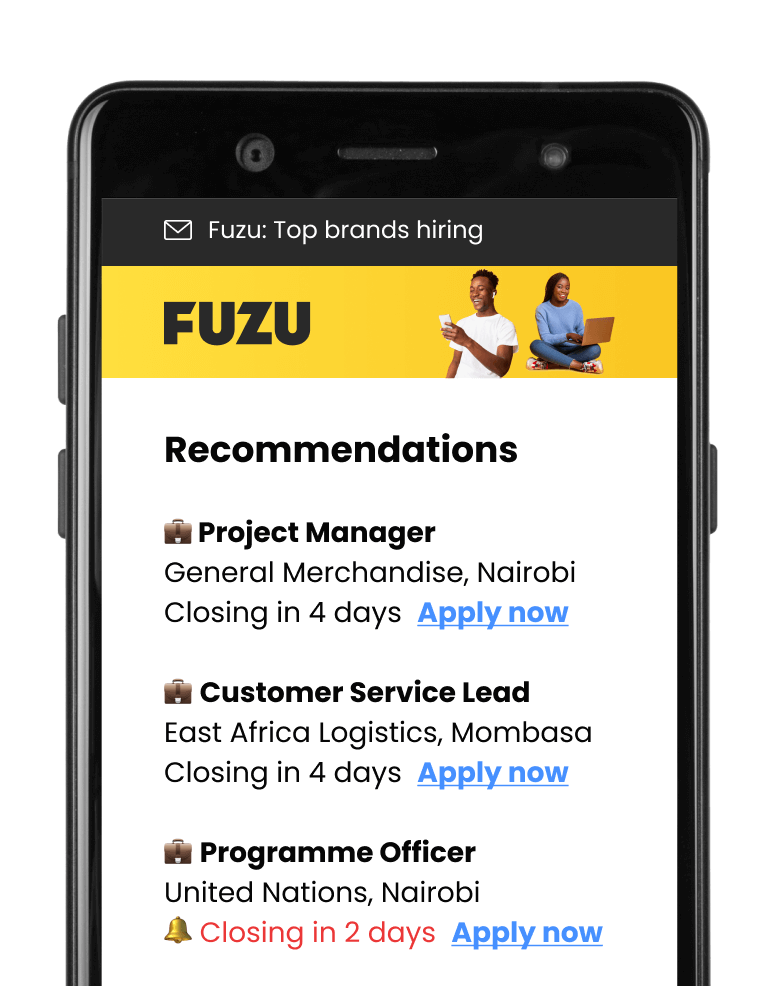Published
Profession
Industry
Seniority
Published
Profession
Industry
Seniority
1
jobs
eHealth Africa
Kano, Nigeria
eHealth Africa
CLOSEDKano, Nigeria

Get personalised job alerts directly to your inbox!
PalmPay
CLOSEDKano, Nigeria
Closing: Jul 20, 2024
14 days remainingPublished: Jul 5, 2024 (2 days ago)
Education:

Work experience:

Language skills:

Contract Type:

Sign up to view job details.
Purpose of the position
Keywords:
What you'll do
Data Management:

Applications submitted via Fuzu have 32% higher chance of getting shortlisted.